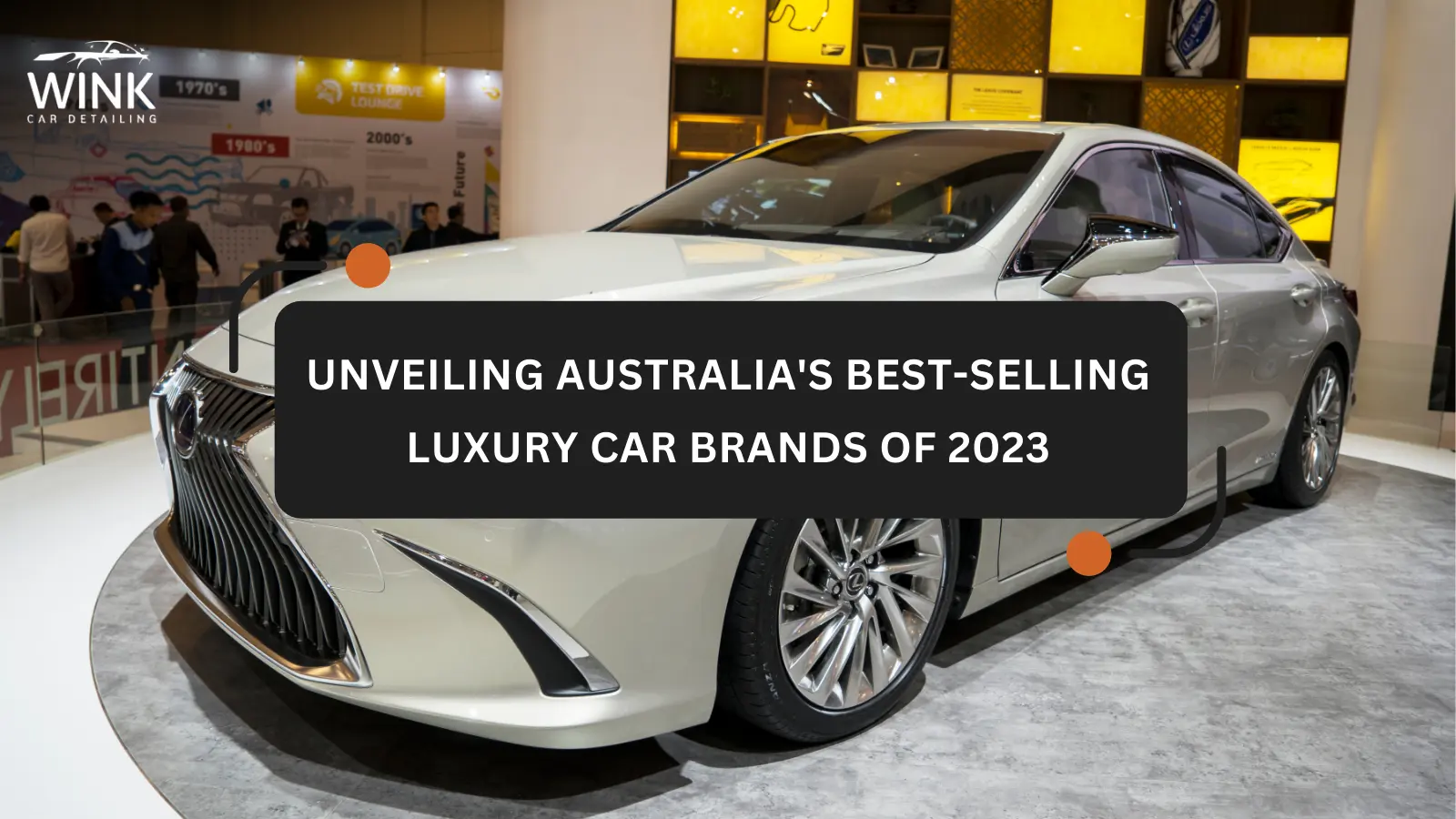Unveiling Australia's Best-Selling Luxury Car Brands of 2023
BMW raced ahead of Mercedes-Benz in the world of cars and SUVs in Australia. Meanwhile, Lexus and Volvo had their best years ever, and Tesla topped them all in sales. Let's take a closer look at how luxury car brands performed in Australia in 2023. Keep in mind that the numbers from VFACTS are based on actual deliveries to customers, not just orders.
We won't examine into super luxury brands like Bentley and Rolls-Royce to keep things short, but we'll include Tesla to give you an idea, even though some discussion if it's truly a luxury brand. Tesla zoomed ahead with 46,116 sales. Other brands surely had their moments too. Let's explore how they fared in the race of luxury cars down under.
Tesla's Impact and Market Disruption
While Tesla may seem like an odd fit in the luxury car segment, its Model 3 and Model Y come with price tags that not only compete with luxury brands but also undercut some market rivals. However, for the sake of context, we've included Tesla in this analysis.
In 2023, Tesla experienced a remarkable flow in sales, marking a staggering 135.4% increase over the previous year. Although offering just two models, the Model Y, which became Australia's top-selling electric vehicle (EV), and the Model 3 Tesla managed to capture a significant portion of the market.
The sales of Model 3 witnessed a commendable 59.5% rise year over year, but the real star was the Model Y, boasting a remarkable 230% surge in sales.
Tesla did really well in Australia, even better than other brands on this list. It beat brands like Subaru, Volkswagen, and Nissan, which have been around for a long time.
BMW's Impact in the Australian Luxury Car Market
BMW managed to outpace Mercedes-Benz in the luxury car race, but there's a twist to this victory. When considering overall sales, including both passenger cars and commercial vehicles, Mercedes-Benz still took the lead. However, if we focus solely on passenger cars and strip away vehicles like the Vito cargo vans, BMW emerges as the winner.
BMW saw a notable increase in sales, rising by 15.4%. Among its top-selling models were the X1, which saw a remarkable surge with 4644 sales, marking an increase of 91.5%. The X3 followed closely with 4002 sales, though it experienced a slight decline of 12%. The X5 also performed well with 3682 sales, showing an 18.4% increase, while the 3 Series maintained its popularity with 3147 sales, up by 11.7%.
However, not all models fared equally well. Sales of the X4, akin to the X3, experienced a dip, totaling 775 sales, down by 13%. Similarly, some of BMW's sportier models faced challenges in sales performance, such as the 4 Series and 4 Series Gran Coupe, which saw declines of 14.3% and 6.2% respectively.
Interestingly, the electric counterpart of the 4 Series had a successful year, with BMW selling 353 i4s, marking a substantial increase of 70.5%. Although the best performance of various models, BMW's overall growth showcases its continued relevance and appeal in the competitive luxury car market.
Mercedes-Benz's Sales Landscape in Australia
Mercedes-Benz had a total of 24,315 vehicle sales in Australia, with an additional 4538 vehicles sold under its Mercedes-Benz Vans division. The Vans division covers a range of vehicles, from practical cargo vans like the Vito to luxurious people movers like the V-Class. However, the majority of sales came from the Sprinter van, totaling 3113 units and showing a solid increase of 15.9%.
On the other hand, Mercedes-Benz Cars saw a decline of 9.3% compared to the previous year, with several key models experiencing double-digit drops in sales. The GLC emerged as the best-seller with 3631 sales, though it did experience a decline of 16%. In contrast, its counterpart, the GLC Coupe, managed to buck the trend with a 17.5% increase, reaching 1799 units.
The C-Class secured the second spot with 2625 sales, marking a notable decline of 26.4%, followed closely by the GLE with 2535 sales, down by 18%. However, the GLE Coupe showed promise with a 3.6% increase, totaling 809 sales.
Even the A-Class, Mercedes-Benz's entry-level model, faced a downturn, with 2392 units sold, marking a decrease of 15.8%. Sales of the EQB saw a significant boost, reaching 783 units and showing a staggering increase of 455.3%. Additionally, the outgoing E-Class saw a surge in sales during its final months, reaching 421 units and experiencing a notable increase of 21.3%.
Audi and Lexus Shine in Australia's Luxury Car Market
Audi saw a strong uptick in sales by 29.2% overall, despite a slight dip in sales for its top-selling model, the Q3, which dropped by 11.7%. The Q5 emerged as its second-best seller, with 4210 units sold, showing an impressive increase of 31.2%. The A3 also performed well, with 3319 sales, marking a substantial 57.3% rise.
Interestingly, some Audi models gained popularity even though they were nearing the end of their lifecycle. Models like the A4, A5, and A5 Sport back saw significant spikes in sales, with increases ranging from 17.1% to 61.3%.
Meanwhile, Lexus celebrated a remarkable achievement with sales soaring by 114.3%, setting a new record for the brand. This boost was attributed to improved supply, reducing wait times for key models like the NX 350h from over 24 months to just 4-6 months.
Notably, over 60% of Lexus sales in 2023 were hybrid, plug-in hybrid, or electric vehicles, marking the first year where these powertrains dominated sales. The NX surpassed the Audi Q5 to become the second best-selling vehicle in the Medium SUV over $60,000 segment, trailing only behind the Tesla Model Y.
The RX emerged as Lexus's second-best seller, with a significant 102.9% increase in sales, followed by the UX and ES, both experiencing impressive growth rates of over 100%. However, excluding discontinued models, only the flagship LS sedan saw a slight decline in sales.
Volvo & Land Rover in Australia's Luxury Car Market
Volvo celebrated another sales record, with a 3.9% increase compared to its stellar performance in 2022. Impressively, 3949 of Volvo's sales were electric models, constituting 35% of its total volume. The brand has ambitious plans to transition to an electric lineup in Australia by 2026, preceding a global shift towards EVs by 2030.
The XC40 stood out as Volvo's best-seller and dominated its segment with 5837 sales, marking a solid 14% increase. Following closely were the XC60, XC90, and the C40, each showcasing their own impressive performances despite fluctuations in sales figures.
However, Volvo's traditional car models faced challenges, with only slight improvements in sales for the V60 Cross Country wagon while the S60 sedan experienced a decline.
On the other hand, Land Rover experienced a significant surge in sales, soaring by 93.8%, primarily driven by robust performances from its top-selling models like the Defender and Range Rover Sport. The Defender saw an impressive 137% increase in sales, while the Range Rover Sport surged by 144.9%.
Land Rover's focus on its higher-end models paid off, evident from the substantial increase in sales for flagship Range Rover and even the Discovery. However, entry-level models like the Discovery Sport and Range Rover Evoque faced declines in sales, both Volvo and Land Rover demonstrated resilience and adaptability in navigating the competitive landscape of the luxury car market in Australia.





